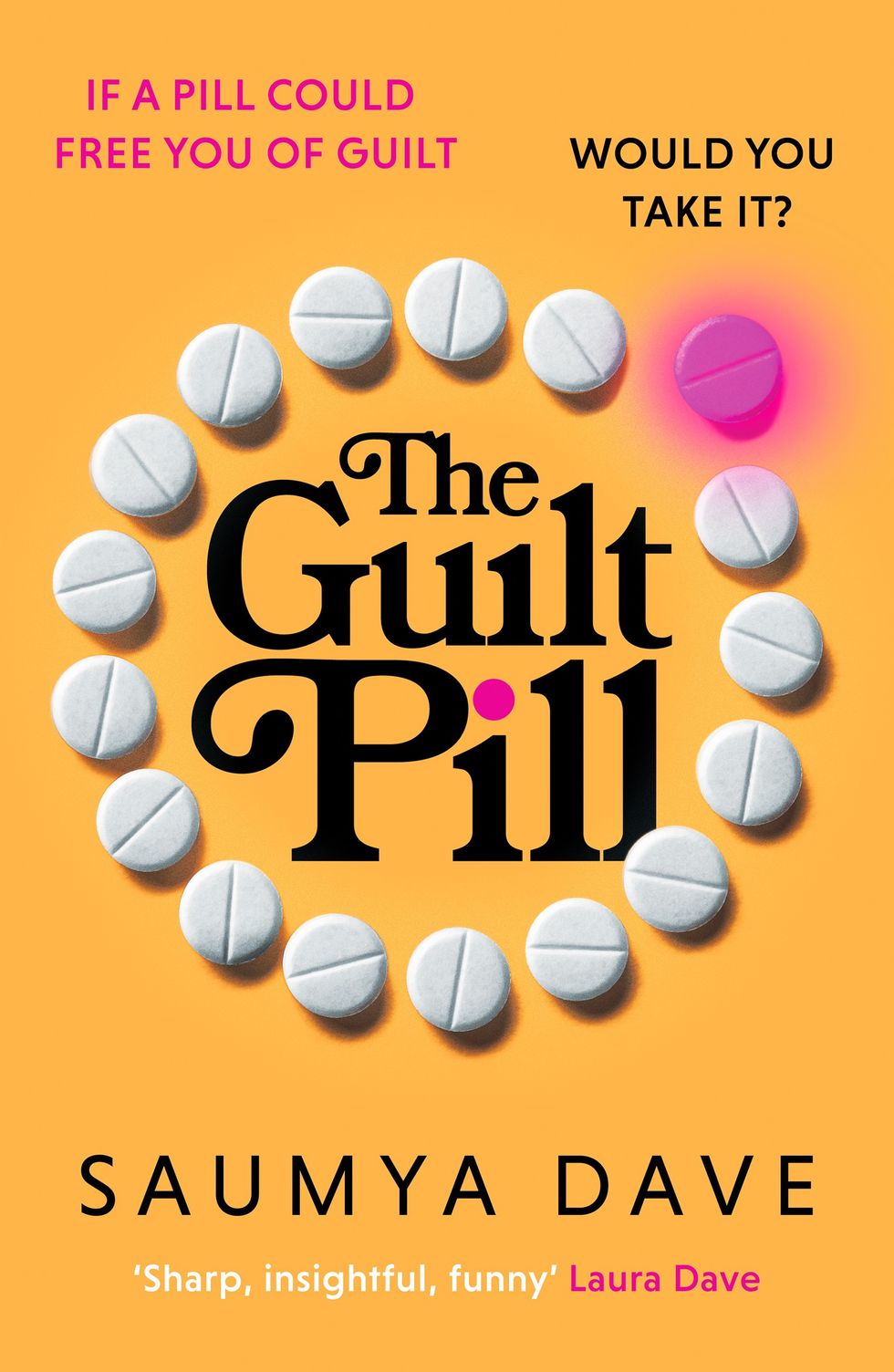It is no surprise that books by Saumya Dave have an emotional impact.
The New York-based author, psychiatrist and mental health advocate uses her immense knowledge to create compelling stories connected to the human psyche.
For her latest novel, The Guilt Pill, she presents a unique story of a working mother and wife who seems to have everything, but is in fact constantly swimming against the tide and struggling to stay afloat.
She is offered a solution – a magic pill that removes all guilt and enables her to be the successful, happy woman projected to the world. As she is propelled down a guilt-free rabbit hole, her life takes a potentially dangerous turn.
Eastern Eye caught up with the writer to find out more about The Guilt Pill, which has been described as a feminist exploration of motherhood, race, ambition, and how the world treats ambitious women. She also revealed her inspirations and what makes for a great story.

What first connected you to writing?
Reading. My parents worked around the clock in the first years we moved to the United States. As an immigrant and child of immigrants, I was curious about the world around me. I also spent a lot of time by myself. Reading was a way for me to escape and feel anchored at the same time. I loved series – Nancy Drew, Hardy Boys, Babysitters Club and Sweet Valley. Staying with different groups of friends helped me feel less alone and, over time, taught me about people living differently from me.
What inspired your new novel?
My first child turned three months old in March 2020.
I felt like I was introduced to new motherhood in a pressure cooker. The fear of an unknown virus impacting people around the world, combined with the isolation of new motherhood, took me to emotional places I had never been before. I was craving a story about the overwhelm in parenting – of love, exhaustion, fear and wonder. As I began to read more about the psychological changes that can happen in parenthood, Maya’s story became clearer.
Tell us a little about the story.
The Guilt Pill is about Maya Patel, a CEO, founder and new mother who discovers a supplement that turns off guilt in women. At first, Maya is empowered with the ability to turn off her guilt for hours at a time. She can do it all and feel great about it. But as she becomes addicted to the no-guilt feeling, her life starts to unravel in ways she never could have expected.
How does this compare to the other books you have written?
This is both a departure and has many of the elements of the first two. On the surface, this story has a speculative element and mystery woven throughout it. All my books explore personal relationships and how people discover who they are in the midst of chaos. All three also have an eldest daughter character because that is the type of character I am always drawn to.
Who are you hoping connects to this story?
I hope anyone who has experienced guilt, wondered ‘what if I could selectively control how I feel’, or felt a contradiction of emotions will connect with Maya’s journey. I wrote this because it is the book I craved when I was a new mum and early in my career.
What inspired the interesting title?
I must give full credit to my friend and brilliant author, Leah Konen. My original title was The Mother Who Swallowed Her Guilt. Leah immediately said the title needed to be short and catchy, then suggested The Guilt Pill.
How much does your work as a board-certified psychiatrist and mental health advocate inform your writing?
My work greatly informs my writing. Psychiatry gives me the privilege of learning about people, hearing their stories, and seeing if there is a small way I can provide support. When I began working with new mothers in my private practice, I heard the term ‘mum guilt’ repeatedly. I began to study what went into the idea of ‘mum guilt’ and discovered there are many layers to it.
Are any characters or situations in this book based on real life?
While the book is not autobiographical, many of the conflicts and emotional tensions come from places I have experienced or witnessed in loved ones. The fulfilment and overwhelm of modern parenting, how workplaces treat new parents and caregivers, how relationships change with life transitions – all of these are things I have personally grappled with and wanted to explore in the tech world for Maya.
How do you feel emotionally ahead of a book getting published?
I am feeling a mixture of emotions. Excitement for the book to be in the world, anticipation for what readers will take away from it, relief that the time is almost here after working on it for years, and a sense of surrender. Once it is published, it is no longer fully mine, and I want to hold on to the freedom that comes with that.
What, according to you, makes for a great story?
Immersion. If I can be immersed in a story, whether that is because of excellent character development, a compelling plot, or because I love the world the creator has put me in, I am in.
What do you enjoy reading yourself, and do you have a favourite book?
I love reading across genres. Fiction, of course. Nonfiction focused on mental health and well-being. I also enjoy poetry and essay collections. My favourite poetry collection is What Kind of Woman by Kate Baer.
What inspires you creatively?
Being present in my own life. In our modern world, we have every reason to be distracted. Putting away my phone and truly taking in the moments I am part of – whether that is playing with my kids, taking clinical notes, reading an article about modern motherhood, or watching television with my husband. All those moments have the potential to inspire me if I am open to them.
What can we expect next from you?
My next novel is about women’s anger – what it means, why it is often misjudged, and what can be done when it becomes a source of power. I am also working on a non-fiction book.
Why should we all pick up your new book?
One of the kindest descriptions I heard about The Guilt Pill is from my amazing UK editor, Keshini Naidoo, during our first call – “The Guilt Pill is a book that explores important issues with the pulse of a thriller.” My hope is that readers find a story that entertains and provides empathy for caregivers, self-identified people-pleasers, or anyone feeling overwhelmed in their roles.
The Guilt Pill by Saumya Dave was published last Monday (7)




